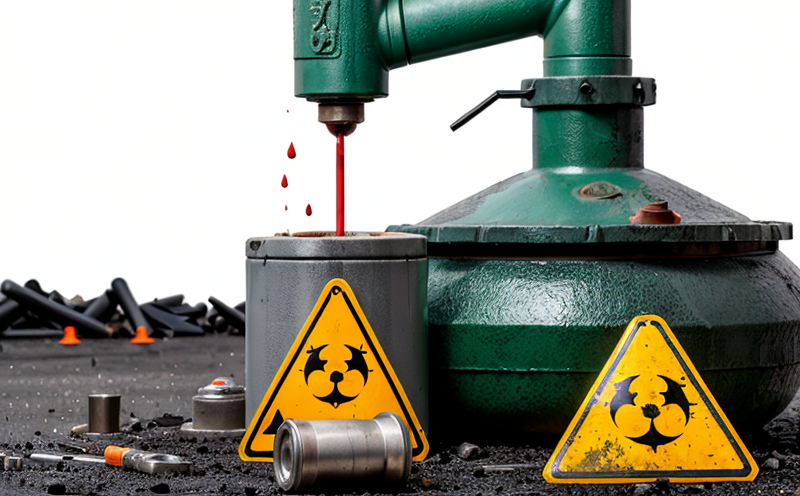JIS K0107 Toxic Substance Testing in Industrial Wastewater
The Japanese Industrial Standard (JIS) K0107 specifies methods for the determination of toxic substances in industrial wastewater. This standard is essential for ensuring compliance with environmental regulations and safeguarding public health.
Industrial processes often generate wastewater containing various hazardous chemicals, including heavy metals, organic solvents, and other toxic compounds. These substances can pose significant risks to aquatic ecosystems and human health if not properly managed. JIS K0107 provides a robust framework for identifying these pollutants through standardized testing procedures.
The standard covers the detection of specific toxic substances such as lead, cadmium, mercury, arsenic, chromium(III), chromium(VI), nickel, copper, zinc, and many others. It ensures that wastewater treatment facilities are effective in removing these contaminants before discharge into natural water bodies or other environments.
The testing procedure involves several critical steps:
- Sampling: Collect representative samples of the industrial wastewater according to predefined guidelines.
- Preparation: Treat the samples as necessary, ensuring they are suitable for analysis. This may include digestion or dilution depending on concentration levels.
- Analytical Methods: Utilize appropriate analytical techniques like atomic absorption spectrophotometry (AAS), inductively coupled plasma mass spectrometry (ICP-MS), or high-performance liquid chromatography (HPLC) to measure the concentrations of target substances.
- Validation: Verify results by comparing them against reference materials and checking for any interferences that might affect accuracy.
The results are reported in accordance with JIS K0107, providing detailed information on the presence and concentration of toxic substances. Compliance with this standard not only helps protect the environment but also ensures adherence to international best practices in environmental management.
Benefits
Implementing JIS K0107 toxic substance testing offers numerous advantages for industrial facilities and regulatory bodies alike:
- Environmental Protection: By adhering to these stringent standards, industries contribute significantly towards reducing pollution in water systems.
- Regulatory Compliance: Ensures that all operations comply with local and international environmental laws.
- Risk Management: Identifies potential hazards early on, allowing for proactive mitigation strategies.
- Reputation Enhancement: Demonstrating commitment to sustainability can enhance an organization's reputation among stakeholders and customers.
Why Choose This Test
Selecting JIS K0107 for toxic substance testing is crucial due to its comprehensive approach to identifying harmful compounds in industrial wastewater:
- Scientific Rigor: Developed by leading experts, the standard employs advanced scientific methods ensuring reliable and accurate results.
- International Recognition: Widely accepted across Asia and beyond, making it a preferred choice for multinational corporations operating in multiple regions.
- Cost-Effective Solutions: Early detection allows companies to address issues promptly, avoiding more expensive remediation efforts later.
- Expertise Assurance: Our laboratory employs certified analysts who are well-versed with the nuances of JIS K0107.
Competitive Advantage and Market Impact
Selecting JIS K0107 toxic substance testing can provide significant competitive advantages:
- Innovation Leadership: Stay ahead of competitors by continuously meeting or exceeding environmental standards.
- Better Relationships with Stakeholders: Building trust with local communities and governments through transparent reporting practices.
- Potential for New Business Opportunities: Demonstrating strong sustainability credentials can open doors to new markets and partnerships.





